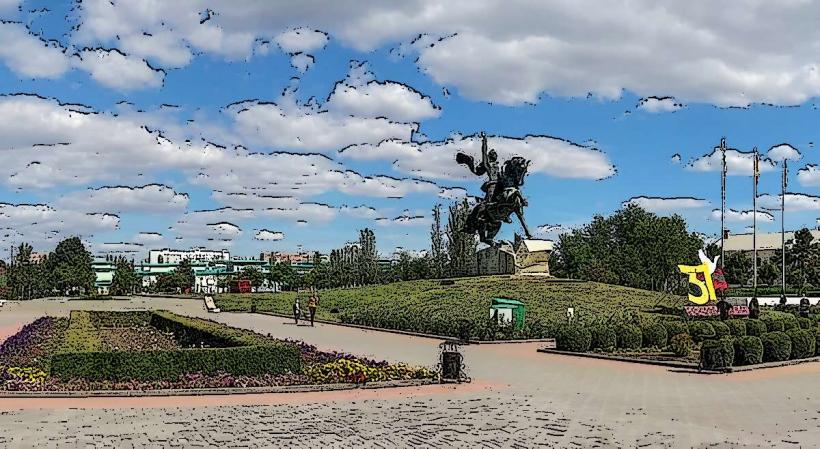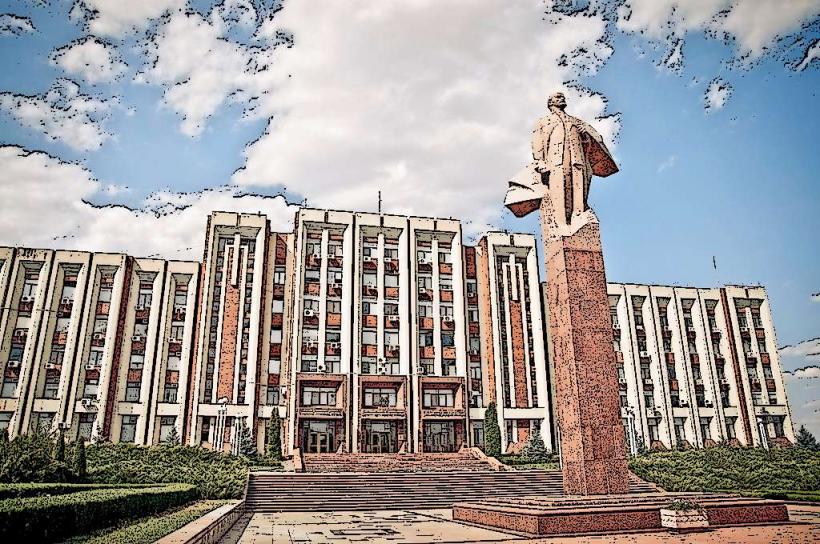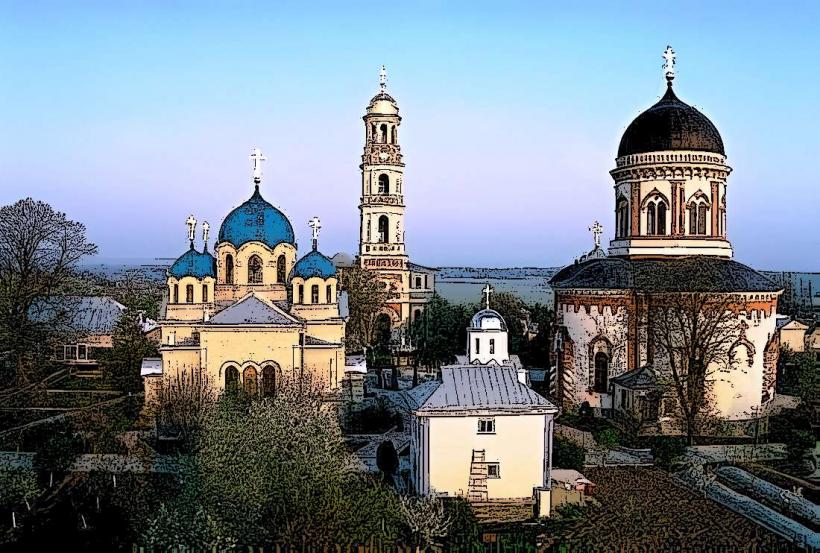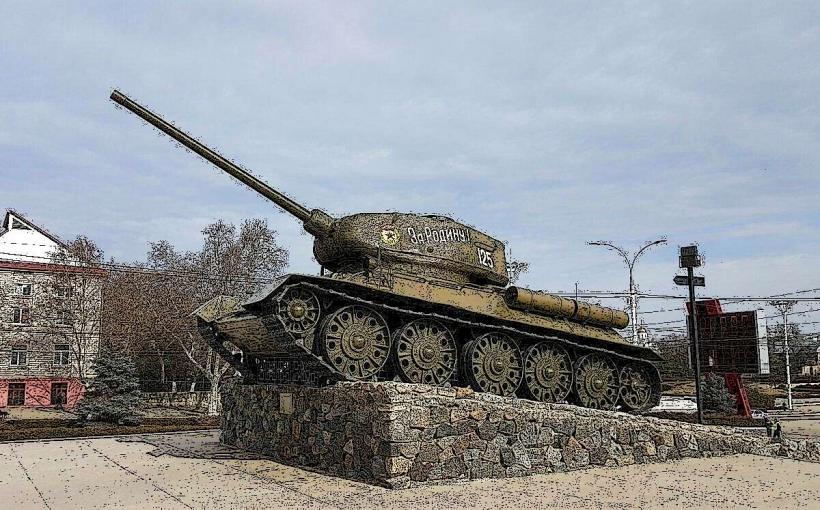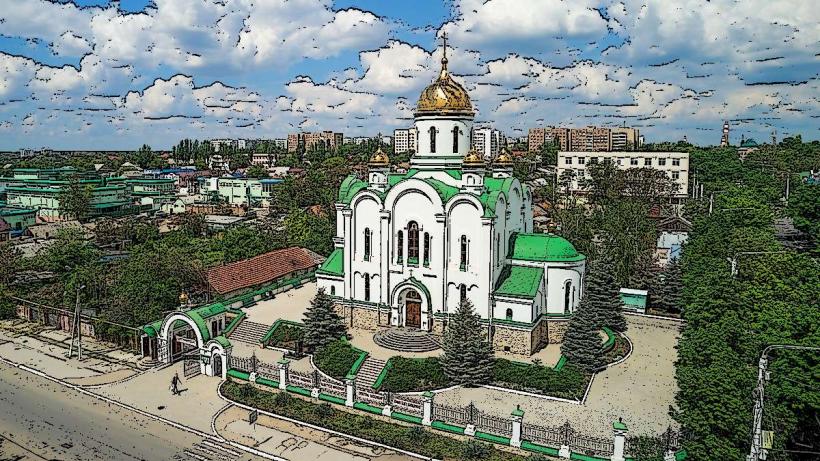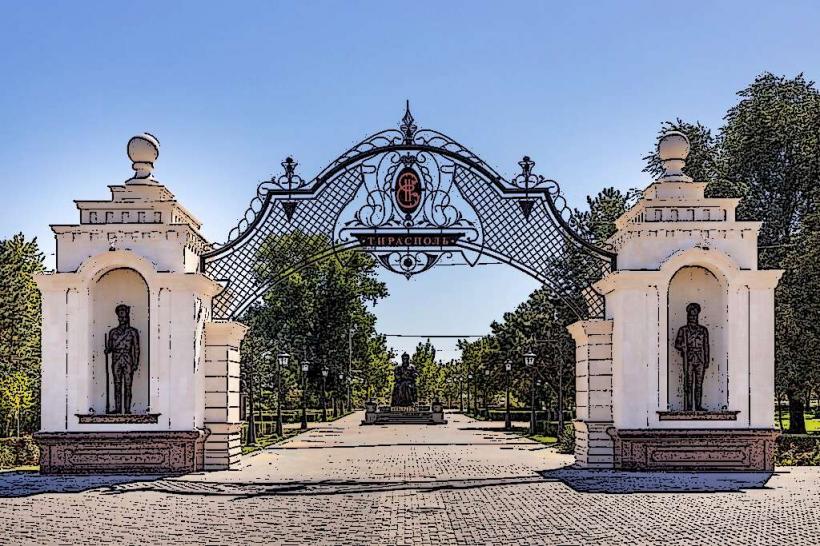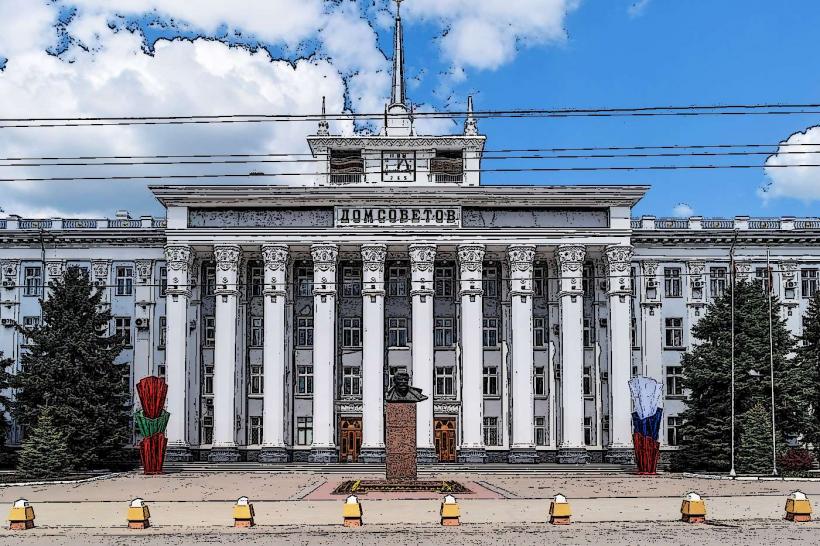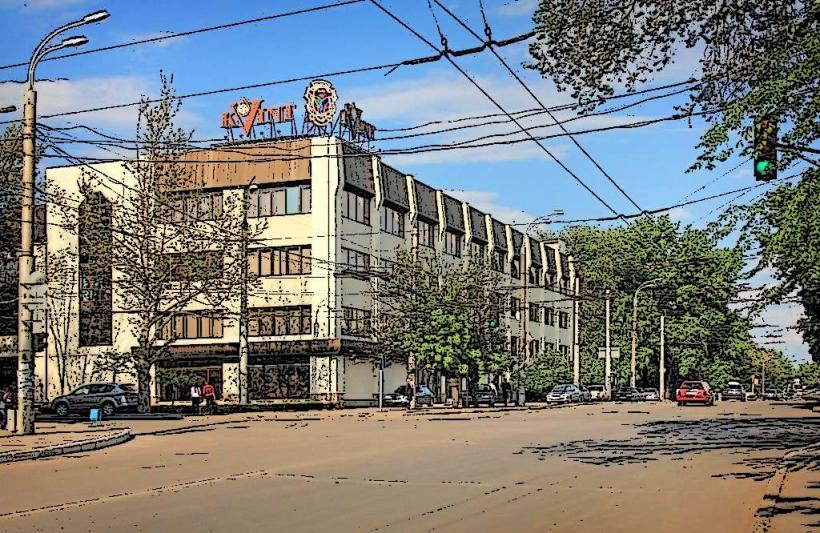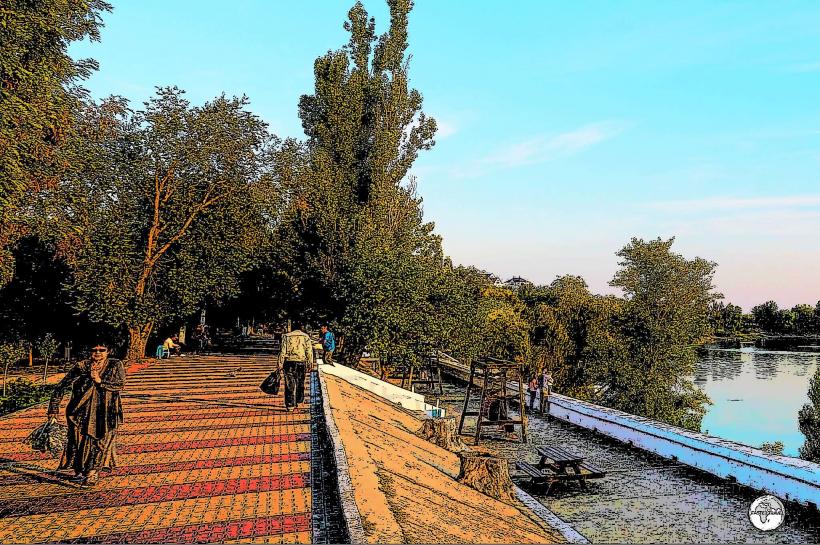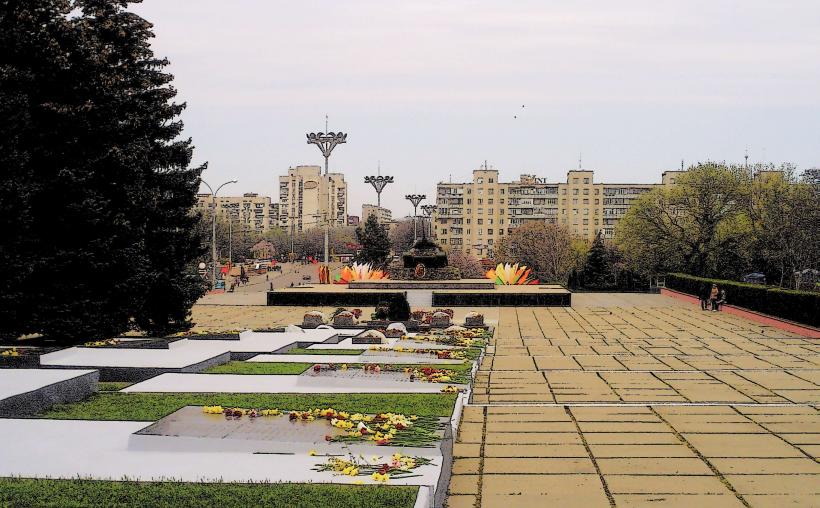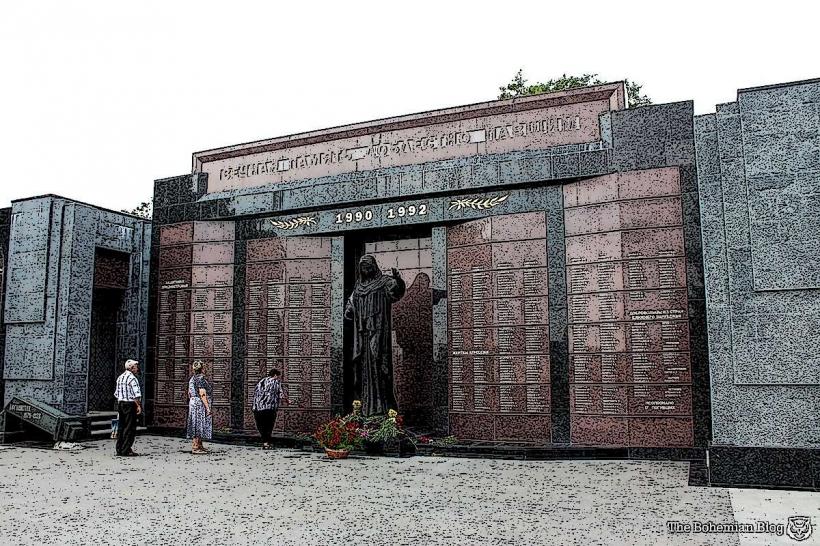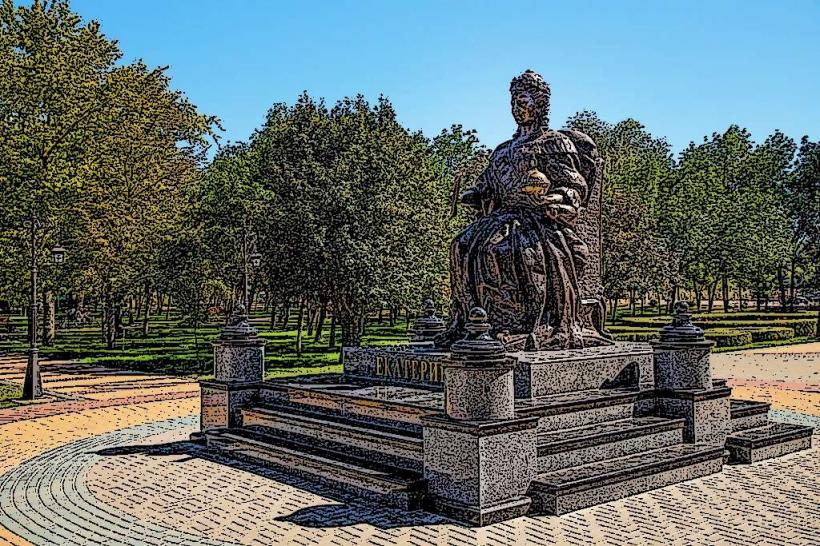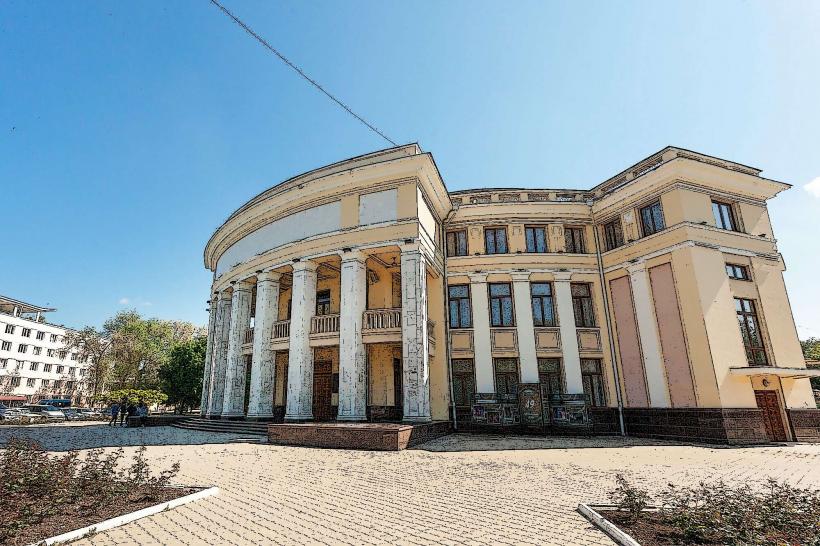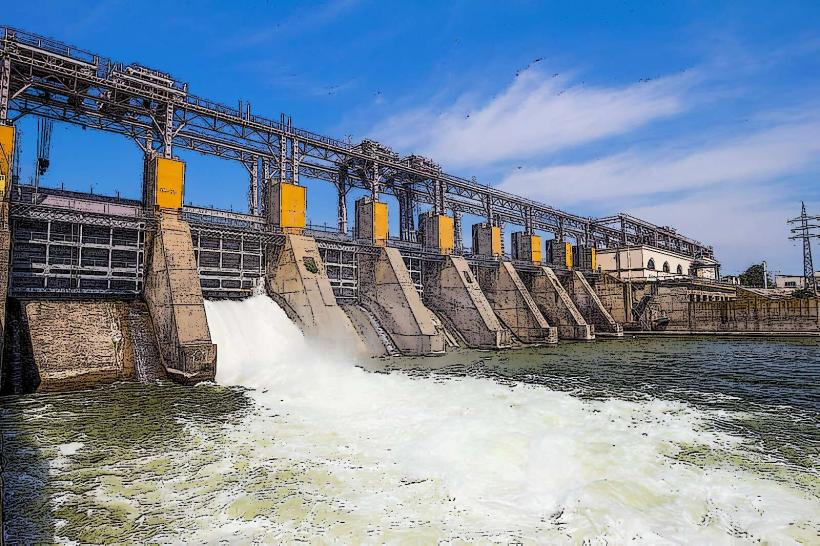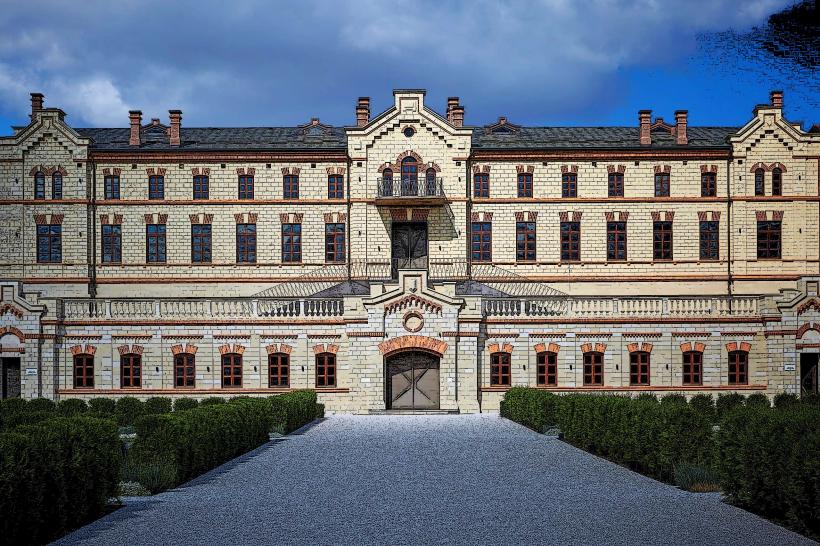Information
Landmark: Pobeda ParkCity: Tiraspol
Country: Moldova
Continent: Europe
Pobeda Park, Tiraspol, Moldova, Europe
Pobeda Park (Parcul Pobeda) is one of the significant public parks located in Chișinău, the capital of Moldova. It holds historical importance and serves as a major recreational space for the residents of the city. The park is named after the Soviet victory in World War II ("Pobeda" means "Victory" in Russian), reflecting its role in commemorating the victory of the Soviet Union over Nazi Germany.
Historical Significance
World War II Memorial: The park was established in honor of the Soviet victory in World War II. It is home to several war memorials and monuments, most notably a large Victory Monument, which commemorates the Soviet soldiers who fought and died during the war. The park’s connection to the victory over Nazi Germany is a central theme, and it serves as a place for remembrance and reflection on the sacrifices made by Soviet troops.
Victory Day Celebrations: Pobeda Park plays a significant role in the Victory Day celebrations held on May 9th, which marks the end of World War II in Europe. The park hosts commemorative events, including military parades, ceremonies, and public gatherings, where locals honor the war veterans and remember the historic struggle.
Architecture and Features
Victory Monument: The central feature of the park is the Victory Monument, a large and imposing structure that symbolizes the Soviet victory. The monument often includes inscriptions or plaques in honor of the fallen soldiers, and its location in the park makes it a prominent focal point.
Green Spaces and Paths: Like many parks in Chișinău, Pobeda Park is designed with wide green spaces, walking paths, and areas for relaxation. The park is filled with trees, shrubs, and flowerbeds, providing a serene environment for visitors to enjoy.
Fountains and Water Features: The park may feature fountains or decorative water elements that add to its peaceful ambiance. These water features contribute to the tranquil atmosphere of the park, making it an ideal spot for visitors seeking relaxation in nature.
Monuments and Plaques: In addition to the central Victory Monument, Pobeda Park includes several other monuments, plaques, and memorials dedicated to various aspects of the Soviet military history and the sacrifices made during the war. These elements are part of the park’s role as a commemorative space.
Recreational Use
Public Gathering Space: Pobeda Park is not only a historical site but also a popular public park where residents of Chișinău come to relax and enjoy leisure activities. Families, children, joggers, and tourists frequent the park to walk, picnic, or simply unwind.
Outdoor Activities: The park offers opportunities for various recreational activities, such as walking, cycling, and sports, particularly in its open spaces. It is a favorite spot for locals to escape the stress of urban life and engage in physical exercise or enjoy the outdoors.
Events and Festivals: The park hosts various cultural events, especially those related to Moldova's national holidays or local community celebrations. While it is primarily a place for relaxation and remembrance, it also serves as a venue for events that bring the community together.
Role in City Life
Historical and Cultural Center: Pobeda Park plays a dual role in Chișinău as both a commemorative and recreational space. Its historical importance as a site honoring the Soviet victory in World War II is balanced by its contemporary role as a place for leisure and social gathering.
Social and Political Symbolism: The park is an important symbolic site for the people of Chișinău, particularly for those who still cherish the Soviet legacy and view the World War II victory as a crucial part of their identity. The park is a place where both historical reflection and everyday life intersect, drawing attention to the region’s complex past.
Conclusion
Pobeda Park is an important cultural and historical landmark in Chișinău. With its rich history tied to World War II and the Soviet Union, the park stands as a place of remembrance and tribute to those who fought and sacrificed during the war. In addition to its commemorative role, Pobeda Park is a beloved recreational area, offering green space, relaxation, and opportunities for community events. It remains an essential part of Chișinău’s urban landscape, serving both as a tribute to history and a sanctuary for leisure.

